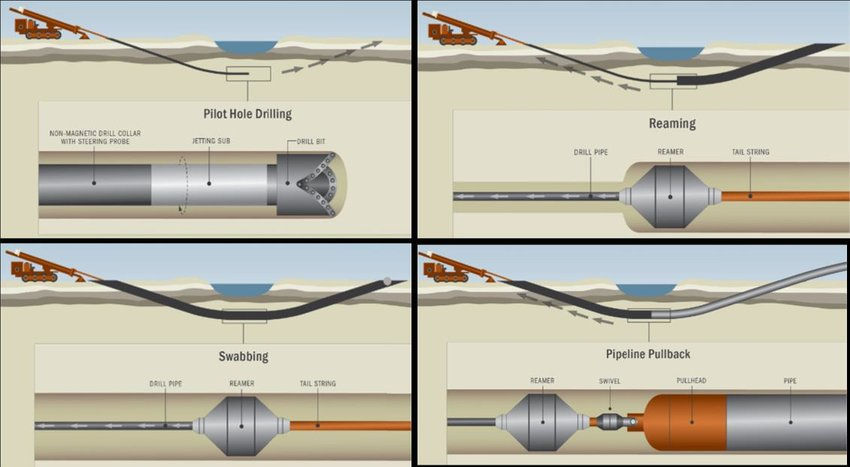Why Should Electrical Wiring Use Conduit?
- Grid Tech
- Nov 14, 2022
- 4 min read
Conduits are pipes that are utilized to route electrical wiring through structures when we talk about them. There are many benefits to employing conduits for your electrical wiring, and they may be installed either indoors or outside. We shall discuss the utilization of drilling pipe conduit wire installation in this article along with their intended function.

1. What Is Electrical Conduit?
A pipe that is intended to conduct electricity is what is known as an electrical conduit. These pipes are employed for a variety of tasks, including drilling pipe conduit wire installation, electrical wiring, and building interiors. Conduit pipes are used for both aesthetic reasons and to safeguard your home or place of business against an electric fire.
Conduits can also be used to route electrical wiring, and drilling pipe conduit wire installation for example, in residential and commercial structures. Galvanized steel, aluminum, copper, PVC, and other materials are frequently used to make conduits. All of these metals are excellent electrical conductors and prevent the flow of electricity through pipes while still allowing it to pass safely through the building. Because stainless steel is more resilient than galvanized steel, some people even use it as a conduit.
Electrical conduit pipes come in a variety of diameters and can be used both indoors and outside. Conduits can also be used for decorative purposes, while they are typically intended to safeguard your property from a fire brought on by electrical wire. Plastics, galvanized steel, aluminum, copper, stainless steel, and plastics can all be used to make conduits.
2. What is the Function of an Electrical Conduit?
An electrical conduit has two purposes: to safeguard your home or place of business from electrocution and to enhance the appearance of your building. Electrical conduits are employed for this purpose in addition to enabling multiple wires to safely pass through a single pipe and drilling pipe conduit wire installation; this is crucial when dealing with large, heavy equipment like electric motors, generators, and other exposed wiring.
These pipes can also be employed for drilling pipe conduit wire installation and when rewiring a structure or when you need to expand the electrical wiring inside your residence or place of business. When manually running an electrical wire or rewiring a building, using an electrical conduit is the proper course of action. Check your local building ordinances and laws before drilling pipe conduit wire installation because occasionally there are restrictions on how to install one.

3. What Applications Do Cables and Conduits Have?
There are many uses for cable conduits and electrical conduits, but using them within a house is the most typical. Use conduit support, which is merely a piece that is put into the pipe itself, while installing these conduits. This is crucial for the stability of the conduit, but it's also crucial because these conduits can get very heavy when they're covered in wires and cables, which makes it even more crucial.
Additionally, you can use these conduits for your home's main electrical wiring (in addition to using electrical junction boxes). To avoid an electric fire, you must, however, ensure that all of your conduit pipes are correctly grounded.
Finally, they are employed in commercial structures. Additionally, a building's exterior might also benefit from the usage of an electrical conduit. These conduits can be used outside, which is particularly helpful for shielding buildings from harm such as falling objects and other exterior damage.

4. Can Wire Be Buried Without Conduit?
While it is possible to bury wires without using conduits, you should never do so. Burying electrical conduits or cables is a highly challenging job, therefore if you want to make sure that it is done correctly, use a professional. This is because the ground itself has electrical resistance, and if the soil gets too wet or too damp, an open circuit may result.
Additionally, because lightning arrestors are made to slow down lightning, electricians cannot bury lines without using them. This is because they attempt to stop the flow of energy caused by a lightning bolt, protecting your electrical system from harm.
5. How do you choose the best electrical conduits for your home or place of business?
To ensure that a pair of electrical conduits you plan to purchase for drilling pipe conduit wire installation is the right one for your needs, you should inspect it carefully for several factors. The purpose of the trunking must be taken into account first. For example, whether it is simple to assemble and disassemble, if it performs well in terms of fire resistance or insulation, whether it is flexible, whether it is acid-base and moisture resistant, etc.
You must comprehend the kind of pipe that these conduits are built of. Additionally, before the drilling pipe conduit wire installation you want to try to learn what the electrical conduit is built of; this will help you determine how long it will endure before needing to be replaced.
Additionally, you must be careful while doing the drilling pipe conduit wire installation and not purchase conduits that have asbestos wrapping on them since asbestos contains tiny fibers that, when subjected to high heat, can be expelled into the air.


Comments